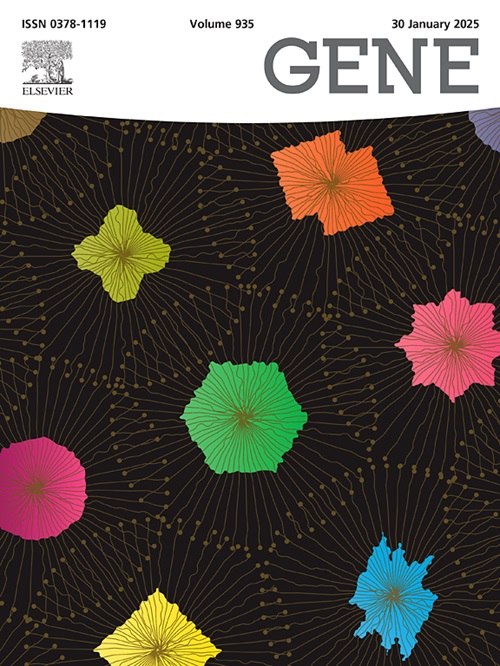丙戊酸表观遗传激活PTEN抑制PI3K/AKT信号通路和Burkitt淋巴瘤细胞生长。
IF 2.6
3区 生物学
Q2 GENETICS & HEREDITY
引用次数: 0
摘要
组蛋白去乙酰化酶(HDAC)抑制剂有望治疗伯基特淋巴瘤(BL),尽管其确切机制尚不清楚。我们研究了特异性HDAC抑制剂丙戊酸(VPA)对BL细胞系RAJI和CA46的影响,重点研究了PTEN/PI3K/AKT通路。使用细胞计数试剂盒-8法和Annexin v -异硫氰酸荧光素法评估细胞活力、细胞周期进展和凋亡。染色质免疫沉淀测序(ChIP-seq)评估PTEN启动子的乙酰化,而基因表达和蛋白质水平分别通过逆转录定量聚合酶链反应和Western blotting检测。VPA处理显著降低BL细胞活力,诱导细胞凋亡和细胞周期阻滞,呈剂量依赖性。与外周血单个核细胞相比,BL细胞的HDAC mRNA和蛋白水平显著升高。ChIP-seq分析显示暴露于VPA后PTEN启动子乙酰化增加。4 mM VPA处理后,BL细胞中PTEN蛋白水平显著升高,HDAC、p-AKT、p-p70S6K蛋白水平显著降低。此外,与VPA单独处理相比,VPA与PI3K抑制剂BEZ235联合处理导致PTEN蛋白表达更高,进一步降低p-AKT和p-p70S6K蛋白水平,进一步降低BL细胞的细胞活力。VPA通过抑制HDAC1调控PTEN/PI3K/AKT通路,在BL细胞中发挥抗肿瘤作用。本文章由计算机程序翻译,如有差异,请以英文原文为准。
Epigenetic activation of PTEN by valproic acid inhibits PI3K/AKT signaling and Burkitt lymphoma cell growth
Histone deacetylase (HDAC) inhibitors show promise in treating Burkitt lymphoma (BL), although the precise mechanisms remain unclear. We investigated the effects of valproic acid (VPA), a specific HDAC inhibitor, on BL cell lines RAJI and CA46, focusing on the PTEN/PI3K/AKT pathway. Cell viability, cell cycle progression, and apoptosis were evaluated using the Cell Counting Kit-8 assay and the Annexin V-fluorescein isothiocyanate assay. Chromatin immunoprecipitation sequencing (ChIP-seq) assessed acetylation at the PTEN promoter, while gene expression and protein levels were measured via reverse transcription quantitative polymerase chain reaction and Western blotting, respectively. VPA treatment significantly reduced BL cell viability and induced apoptosis and cell cycle arrest in a dose-dependent manner. Compared to peripheral blood mononuclear cells, BL cells exhibited significantly higher HDAC mRNA and protein levels. ChIP-seq analysis revealed increased acetylation of the PTEN promoter following exposure to VPA. After treatment with 4 mM VPA, PTEN protein levels in BL cells increased significantly, while levels of HDAC, p-AKT, and p-p70S6K proteins decreased markedly. Furthermore, compared to VPA treatment alone, the combination of VPA and the PI3K inhibitor BEZ235 led to even greater PTEN protein expression, further decreased p-AKT and p-p70S6K protein levels, and further reduced cell viability in BL cells. VPA exerts its antitumor effects in BL cells by modulating the PTEN/PI3K/AKT pathway through the inhibition of HDAC1.
求助全文
通过发布文献求助,成功后即可免费获取论文全文。
去求助
来源期刊

Gene
生物-遗传学
CiteScore
6.10
自引率
2.90%
发文量
718
审稿时长
42 days
期刊介绍:
Gene publishes papers that focus on the regulation, expression, function and evolution of genes in all biological contexts, including all prokaryotic and eukaryotic organisms, as well as viruses.
 求助内容:
求助内容: 应助结果提醒方式:
应助结果提醒方式:


